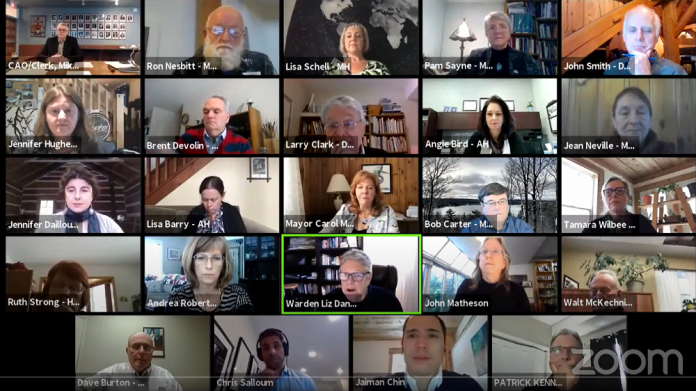
As a journalist, and member of the public, I often reflect on the pandemic and what changes it has imparted on our society.
Naturally, the list of cons often surpasses the pros.
However, there have been some silver linings for the fourth estate and I would argue that also translates to some wins for the general population.
For example, earlier this week I was able to attend the Rural Ontario Municipal Association (ROMA) annual conference.
That was because it was virtual. So was the 2021 one. In the pre-pandemic past, the conference was held in Toronto and it wasn’t feasible for a small-town newspaper such as ours to send a journalist there for the two-day conference. It would have been costly with transportation, accommodation and meals.
So, if we did a story – and we didn’t always – we relied on our municipal councillors to come back and tell us what had gone on.
On Jan. 24-25, I was able to watch it myself, either live or recorded.
For a newspaper editor, it was a win-win. As a taxpayer, I also did not have to foot the bill for our councillors to attend in-person. The con for them is that they enjoy the casual conversations that often arise at these conferences, making valuable connections. However, there is still the option of reaching out to someone who spoke out during a session and touching base in other ways. It does not have to happen in a bar with a drink in hand.
In the same manner, I was able to attend the Ontario Municipal Association (AMO) conference.
For the public, I think the live streaming of council meetings has been a pandemic gift. In the past, it has been difficult for some people to attend council meetings because they are held during the day and require driving to one of the municipal offices. Now, people can view from their homes either live or recorded.
There are times when only a handful of people are watching, but on other occasions, such as the recent shoreline preservation bylaw meeting, there were close to 80 at some points during the meeting.
As a reporter, I can truthfully say that my reporting is more accurate now as well. I can go back and check what people have said. There is no longer an opportunity for subjects to say that they have been misquoted.
The other real benefit to journalists, and some members of the public, is the livestreaming of court proceedings. In the past, we rarely, if ever, would drive to Lindsay to cover a court matter. Now, if there is something major on our radar, we can follow the proceedings.
Since the nature of the court system is a lot of deferrals, we are not wasting as much time waiting for matters to be finalized either as we might have in the past. Nor are we having to email the Ministry of the Attorney-General’s office or the courthouse in Lindsay to see what is going on with a particular case.
It is the type of access that we should have had all along. It is the type of access that we cannot be denied in future. After all, if we can improve our reporting, the public is better served.



